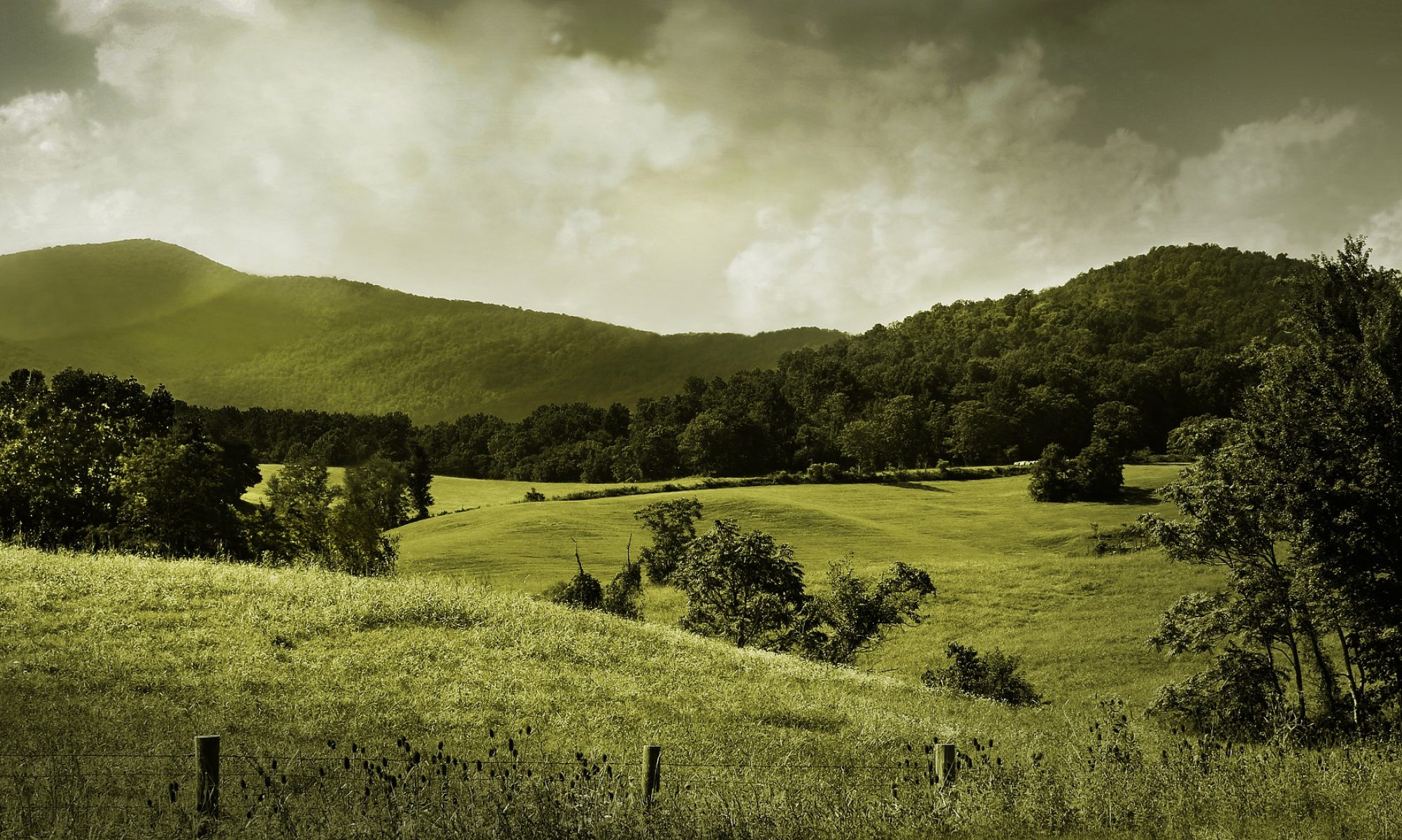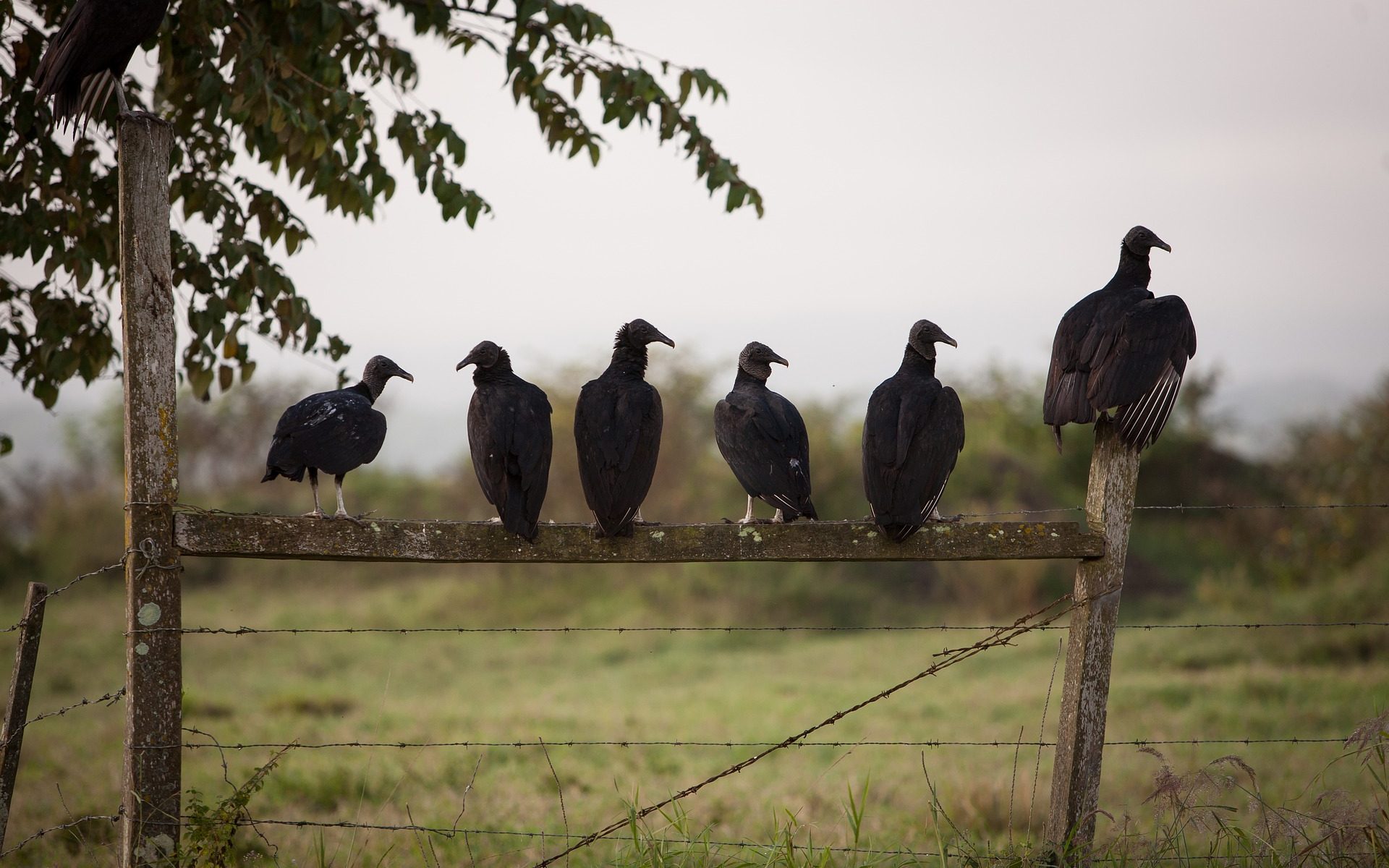Overview
Turkey (Cathartes aura) and black (Coragyps atratus) vultures are both inhabitants of Virginia. Vultures are important members of the wildlife community. They play an important role as natural cleaners and recyclers. As scavengers, vultures eat dead animals in the environment. Their unique digestive system allows them to feed on carcasses that have bacteria that could make other animals sick. Once digested, the nutrients from these carcasses are returned to the environment when the Vultures defecate.
Vulture damage can be grouped into two gross classifications of urban/suburban damage and livestock damage. Both the turkey vulture and black vulture are classified as migratory birds and are therefore protected by the Migratory Bird Treaty Act.
Turkey, black or both vulture species may occupy roost sites in urban or suburban areas where they can conflict with people. People tend to have health concerns about these roosts due to excessive accumulations of fecal droppings, concern for the health of children and pets who may be exposed to bacteria or viruses in vulture fecal droppings or vomit. Damage caused by turkey or black vulture roosts include loss of use of the property, the over-powering ammonia odor emanating from the roost site, death of ornamental trees from acidic fecal droppings or excessive limb breakage, and the aesthetically unappealing white-wash effect from fecal droppings on lawn furniture, the home, walkways, vehicles, and the yard. Damage concerns often associated with live stock are predation by black vultures and disease transmission by both species. Although relatively infrequent, vultures will attack and kill weak, sick or injured animals, including young livestock. At other times they may injure livestock (eyes in particular) during attacks which may require injured animals be euthanized.
Management Options
Techniques used to manage wildlife conflicts are broken into 3 major categories: husbandry methods, non-lethal methods, and lethal methods. These categories are consistent with the hierarchical design that characterizes most vertebrate integrated pest management (VIPM) programs. Under an VIPM program, you first must identify the conflict and evaluate its seriousness, then you review and evaluate the options that are available to relieve or permanently solve that conflict. Then, based on the outcome of that assessment, you select and apply the management strategies appropriate to the need, starting first with the simple, inexpensive, and less invasive techniques, but moving on to the more complex, expensive, or time demanding options where need dictates. A general rule of thumb of an VIPM approach: lethal options generally are viewed as methods of last resort, ones used only when all other methods prove ineffective. Therefore, in this section, we present a review of options that follow the VIPM hierarchical approach.
Husbandry
Obvious attractants, such as open garbage, can be removed or enclosed, although the source of a site’s attraction can be unclear. Carcasses should be promptly removed and disposed of.
Non-lethal Approaches
Sound- and light-devices (i.e., propane cannons or pyrotechnics and lasers) may be used to disperse the vultures, especially at the roost location as birds return to settle for the night. A vulture effigy, hung correctly, will often scatter a roost.
Lethal Approaches
In some situations, selective, lethal removal of birds may be needed to resolve damage effectively.
Legal Considerations
In Virginia vultures are a protected non-game species. In addition to state non-game laws vultures are also federally protected under the Migratory Bird Treaty Act. The Virginia Department of Game and Inland Fisheries shares regulation authority over vultures with the United States Fish and Wildlife Service. At no time is it legal to use lethal force on vultures without first obtaining a permit from both the Virginia Department of Game and Inland Fisheries and the U.S. Fish and Wildlife Service.
In Virginia it is illegal to:
- Molest or destroy a vulture nest and/or eggs. §29.1-521.
- Trap any vulture §29.1-530
- Kill a vulture anytime. §29.1-100,§29.1-513
- Poison any animal (including vulture) on your property. 4VAC15-40-50
It is a Federal offense to:
- Possess, sell, deliver, carry, transport, or ship any vulture or vulture part since they are classified as a migratory species. (Migratory Bird Treaty Act)
Additional reading


